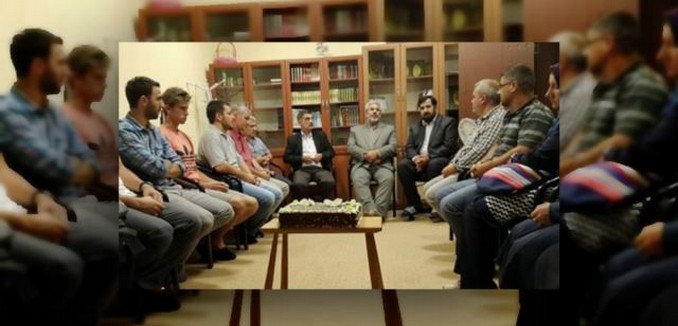The recent arrest of an Iranian cleric by authorities in Kosovo shed light on Tehran’s efforts to gain influence in the central European Muslim-majority nation, Radio Free Europe/Radio Liberty (RFE/RL) reported Thursday.
Hasan Azari Bejandi was arrested earlier this week on charges of financing terrorism and money laundering through an organization that he heads. Bejandi has been linked to five Kosovar Shiite organization with ties to Iran.
Calling Bejandi the “most high-profile Iranian cleric to be arrested,” RFE/RL described the move as a possible blow to Iran’s designs in the Balkans, “potentially cutting off a rare avenue of influence for Tehran in Europe, where charities believed to be tied to Iran also operate in Albania, Macedonia, and Bosnia-Herzegovina.”
The arrest of Bejandi comes as Kosovar authorities are cracking down on foreign-funded Islamic organizations operating within its borders, which the government says are radicalizing youths. By government estimates, 300 Kosovars have traveled to Iraq and Syria to join Islamists fighting there. Given Kosovo’s population of under 2 million people, it is the largest per capita source of fighters for the Islamic State. The effort has led to the closing of dozens of foreign-funded Islamic charities, most of which have been funded by Saudi Arabia.
Iranian charities began operating in Kosovo following the end of the war there in 1999. The charities, which built schools and mosques, “also spread anti-Western and anti-Semitic propaganda, and are seen to be tied to Tehran’s long-standing effort to export its Islamic Revolution,” RFE/RL wrote.
Visar Duriqi, an investigative journalist for Kosovo’s Gazeta Express news website, told RFE/RL that while these activities didn’t initially garner a lot of attention, “that changed when authorities found out that the NGOs were hiding their sources of income and the purposes of their spending.”
Bejandi led the Qur’an Foundation of Kosova, which allegedly supported five other Shiite Kosovar organizations that were shut down by authorities in recent months. According to prosecutors, Bejandi laundered hundreds of thousands of dollars between 2005 and 2015.
According to Duriqi, who has investigated Iranian influence in Kosovo, the Qur’an Foundation of Kosova and its affiliated organizations appear to be affiliated with Al-Mustafa International University. The university is based in Iran but has branches around the world, including Kosovo. According to Mehdi Khalaji, a senior fellow at the Washington Institute for Near East Policy, it is owned by Iranian Supreme Leader Ayatollah Ali Khamenei.
In an article published earlier this week, Emanuele Ottolenghi, a senior fellow at the Foundation for Defense of Democracies, described how Iran sought to similarly spread its influence throughout South America. As in the Balkans, Ottolenghi observed, clerics and religious and educational institution associated with the Iran-backed terrorist group Hezbollah spread its influence among Shiite groups in South America.
[Photo: Al Mustafa International University ]




